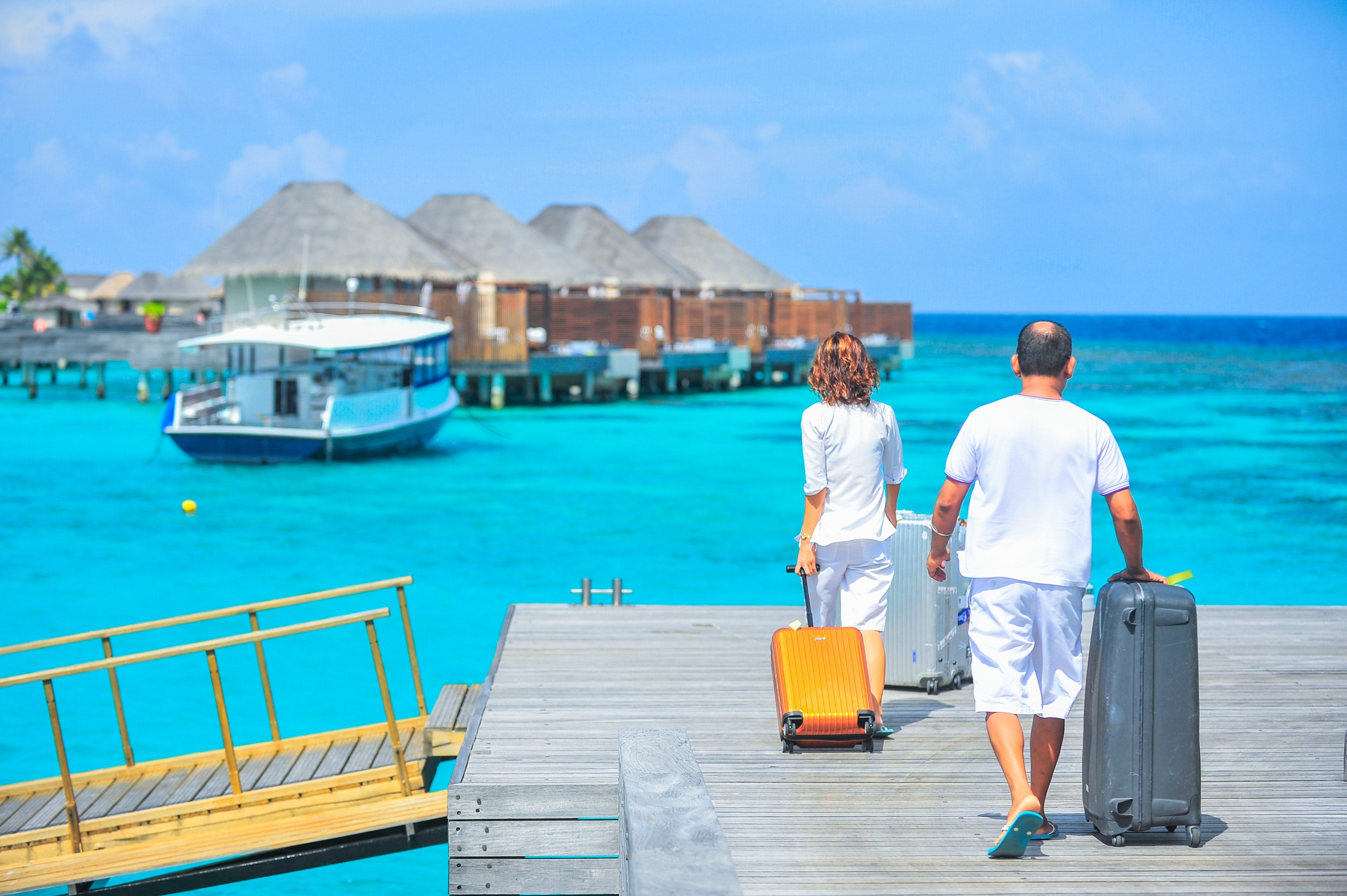When planning your next vacation destination, one of the most important things to consider is what languages the locals speak. You don't want to get caught without no idea what anybody around you is saying.
With a Jarvisen Smart Translator, you can decipher most anything in any language. So we've selected ten popular countries for rest and relaxation, and uncovered what the people there speak the most.
This blog won't cover countries like Italy, France, Spain, and Germany, where the country's name gives away the dominant language. Other nations are less obvious, so we're going to focus on those. Get ready to set your Jarvisen to the following dialects:
Tahiti

Visit any of the 118 Tahiti islands of French Polynesia, and you'll likely hear French all around you. That is the official language used in most schools, businesses, and other public places around Tahiti.
Tahitian is the second official language of the region, though it's far less dominant than French. You're much less likely to hear that if you're hanging around tourist destinations. Befriend some natives and get invited into their homes, however, and that's where you'll hear Tahitian most often. It's best to get acquainted with both, just in case.
Thailand

Thailand, to keep it brief, loves languages. Visit there long enough, and you'll hear dozens of different dialects, which will give your Jarvisen quite the workout.
The official language of Thailand is Central Thai, also known as Siamese. But that's not all you'll hear. Once you start hitting the rural parts of each region, you might encounter literal scores of minor, yet varied, languages. Some local Thai people speak (and this is just a partial list): Bru, Chone, Chung, Kuy, Mon, Thavung, Vietnamese, Malay, Akah, Lao, Hakka, Cantonese, Mandarin, and several dozen more.
You should be fine with Thai in most parts of the nation. However, every so often, expect to find yourself confused by how the locals talk, no matter how good at Thai you are.
United Arab Emirates

The United Arab Emirates ranks among the hottest (and richest) vacation spots around. Language-wise, it's pretty varied. If you stick around Dubai, you'll hear a lot of English, so you're golden. Venture elsewhere in the UAE, and you'll encounter mostly Arabic.
But wait, there's more! Due to the UAE increasingly being an international hotbed, you'll likely encounter many a foreign expat speaking all sorts of languages. Be prepared to brush up on your Persian, Chinese, and Malayalam, to name a few, if you wish to communicate with everyone around you.
Netherlands

If you hit up the Kingdom of the Netherlands (whether it's to enjoy Amsterdam or otherwise), you'll encounter a ton of Dutch being spoken. That is both the official and dominant language of the Netherlands, being spoken by roughly 98 percent of the population.
That said, if you can genuinely only bring yourself to speak English, you'll likely be okay provided you limit yourself to where the tourists are. Venture into the rural and residential Netherlands, however, and expect the people to force your Dutch hand real fast.
Prague (Czech Republic)

Prague is perhaps the most gorgeous and unique city in all of Eastern Europe. Being part of the Czech Republic, you're likely to hear a ton of Czech spoken there. Czech is both the official and dominant language of the entire country.
But that's not all. Many Czech people speak multiple languages, so expect to hear them all. You'll listen to a lot of younger Czechs speak English, which should be simple enough. However, encountering older Czechs will likely introduce a lot of Russian and German to your ears. To cover your bases, get yourself acquainted with all those tongues.
Costa Rica

The gorgeous, vacation-happy island of Costa Rica doesn't speak Costa Rican, because such a language does not exist. Instead, the majority of the natives speak Spanish, one of the most popular foreign languages in the world.
Keep in mind, however, that they don't speak Spanish as the Spaniards do. They employ a variety called Costa Rican Spanish, though if you only know regular Spanish, you should be able to get by.
Also, hit the coastal areas and there's a chance you'll run into a Creole-English dialect called Mekatelyu. Even if you can't grasp it, there's enough English in this tongue that you should be able to fake a full understanding at least.
Jamaica

Much like with Costa Rica, there is no such language as Jamaican. In fact, for the most part, Jamaica speaks English! That way, you can focus less on interpretation and more on vacation.
Well, for the most part. The country does sport a minor second dialect, a patois called Patwa. It's like a dump cake of languages, drawing influences from Spanish, Hindi, Irish, Arawak, and a slew of African languages to create something wholly unique and wholly Jamaican.
Brazil

Don't think you have to learn Brazilian to visit Brazil. There is no such thing. Instead, the dominant (and official) language in Brazil is Portuguese. No matter where you go in one of the largest countries on earth, you will hear Portuguese.
That said, it's not Portuguese as spoken in Portugal. The Brazilians created their own variation, known as Brazilian Portuguese. There are differences galore, but also plenty of similarities. So if you're knowledgeable in regular Portuguese, you should get by in Brazil just fine.
Egypt

Are you setting out to view the majestic Egyptian Pyramids? Then get used to hearing Arabic in several forms.
Officially, the Egyptian language is Standard Arabic. You'll see that dialect written everywhere and spoken by officials and businesses. But for the common folk, it's a little different. Walking down the street, you'll likely hear Masri, or Egyptian Colloquial Arabic.
Like Brazilian Portuguese, it's a native variation of another language that you already mostly if you speak the predominant variation. But it's still good to know and understand the differences, so you don't sound too casual around official-type people, or too formal around common types.
Chile

If you're visiting Chile, learn Spanish. Do it.
Over 99 percent of the Chilean population speaks Spanish, or as they call it, Castellano. Their version is a bit different from regular Spanish, enough so that "Chilean Spanish" is a thing. That said, if all you speak is regular Spanish, confusion levels between you and the locals should be minimum to nil.


Share:
How Language Translation Can Help Your Business Grow
Important Languages and Phrases To Know When Visiting South Korea